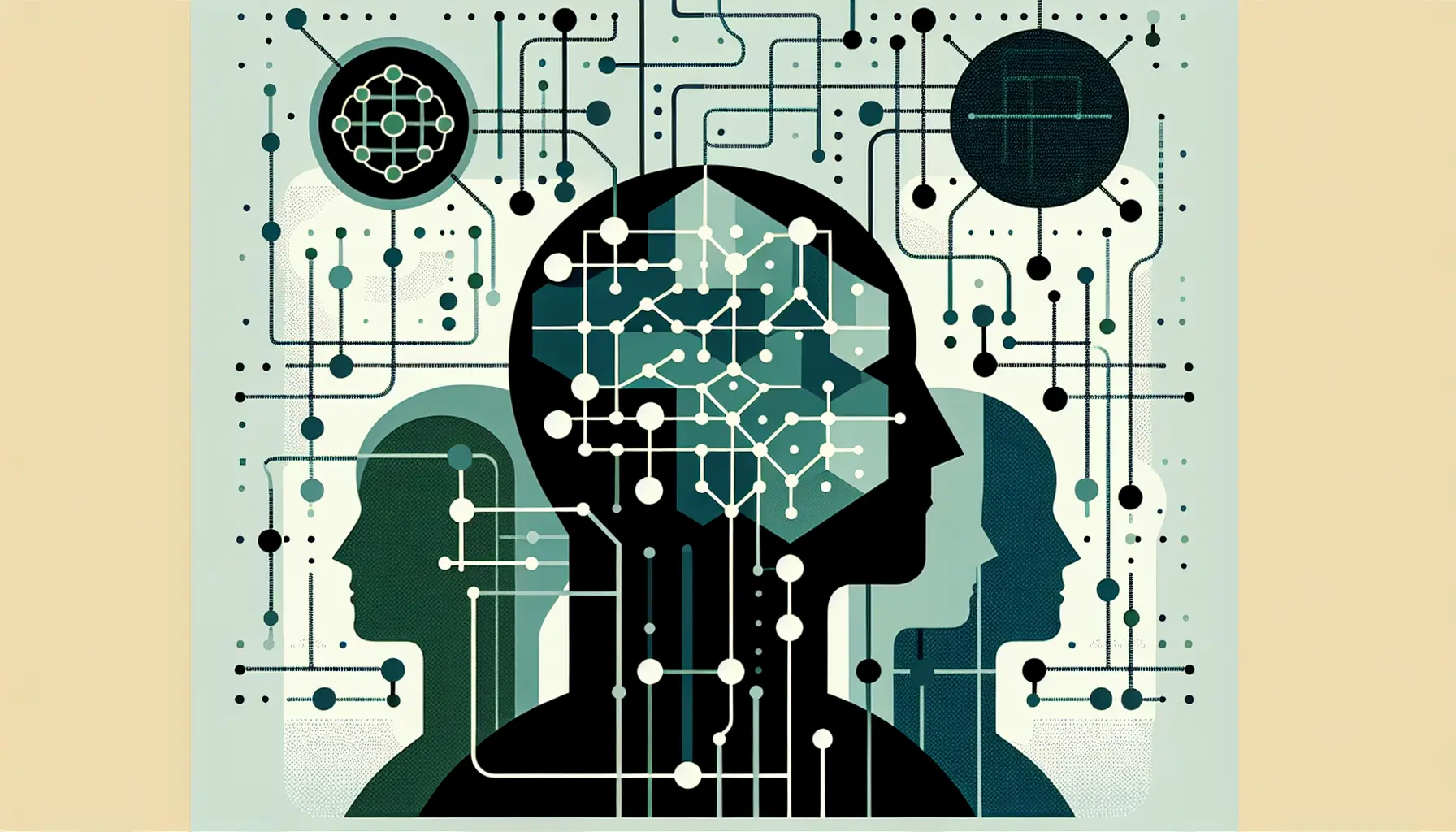



Decentralized Artificial Intelligence (AI) is revolutionizing technology, diverging from traditional centralized models. By distributing computational processes across a network, decentralized AI reduces single points of failure, increases privacy, and empowers users to contribute to AI development and benefit from shared intelligence. This collective approach marks a significant shift in how intelligence systems are built and managed, heralding a new era for AI.
Large Language Models (LLMs) like OpenAI's GPT-3 have amazed the world by generating human-like text based on massive datasets. These models leverage deep learning algorithms to understand and emulate human language nuances. However, the centralization of data in these models can lead to privacy concerns and limited accessibility.
Decentralizing LLMs addresses these challenges by spreading the storage and processing of data across a blockchain network. This structure not only enhances data security and privacy but also democratizes the development and usage of AI, making it accessible to a broader audience and preventing monopolies. For example, blockchain-based LLMs can ensure that personal data used for training remains anonymous and secure, thereby fostering trust among users.
Despite the promise, decentralizing LLMs presents technical hurdles such as ensuring consistent model updating and latency. Nonetheless, the intersection of these technologies paves the way for more transparent, fair, and secure AI systems, aligning with the principles sketched out in the emergence of decentralized AI.
At the forefront of AI transformation, blockchain founders and tech innovators are embedding blockchain's immutable and distributed ledger into AI infrastructures. This hybridization leads to AI systems that not only boast enhanced security and decentralized control but also benefit from the integral transparency and traceability features of blockchain technology.
Significant partnerships have blossomed in this dynamic space, with OpenAI standing as a beacon for collaborative efforts. OpenAI's initiatives in the realm of decentralized systems highlight the organization's commitment to ethical AI distribution. Through strategic alliances, OpenAI has been instrumental in propelling industry standards for open and accessible AI, ensuring that these powerful tools are used responsibly and equitably.
This cooperation merges OpenAI's AI expertise with blockchain's strengths in security and decentralization, driving innovation while aligning AI development with user-centric values of privacy and open access. These collaborative efforts are reshaping the AI landscape, setting precedents for future breakthroughs in a decentralized digital world.
As the AI industry evolves, data privacy and user control have emerged as critical concerns. Decentralized AI, in contrast to its centralized counterparts, proffers a paradigm where users have substantial authority over their personal information. By leveraging blockchain technology's inherent security features, such as encryption and distributed storage, decentralized AI can ensure that user data remains private and tamper-resistant.
This model challenges the opaque data usage practices prevalent in centralized AI, fostering transparency and giving users the power to consent to, or restrict, the use of their data. In an era where data breaches are commonplace, trust in AI can be significantly bolstered. Furthermore, decentralized AI aligns with the burgeoning advocacy for ethical AI governance, promoting fair use and preventing exploitation of individuals' data. User empowerment through secure and ethical handling of data stands at the heart of decentralized AI, embodying a future where technology respects and prioritizes user autonomy and privacy.
Decentralized AI stands as a pivotal force in democratizing access to cutting-edge AI technologies. By dismantling the barriers erected by centralization, it ushers in an era where advanced AI tools are within reach for developers, researchers, and entrepreneurs regardless of their affiliation with large corporations.
Traditional AI development is often siloed within well-funded organizations, but a decentralized approach fosters a community-driven environment. This paradigm shift not only encourages innovation and collaboration but also ensures a more equitable distribution of AI benefits. As blockchain technology integrates with AI, it opens pathways for smaller entities to contribute to, and benefit from, the collective intelligence of decentralized networks.
The democratization of AI aligns with OpenAI's vision of collaboration, preventing a monopoly on AI advancements and facilitating a diverse ecosystem of ideas and solutions. By prioritizing accessibility, decentralized AI empowers a broader audience to shape the future of technology, creating a more inclusive and robust AI landscape.
As decentralized AI technologies mature, we are on the cusp of witnessing profound shifts in society and industry. The fusion of AI with blockchain promises an era of enhanced data sovereignty and collaborative intelligence, redefining our interactions with technology. The trajectory points towards AI systems that are not only universally accessible but also grounded in ethical standards that prioritize user interests and privacy.
The long-term societal impacts could be revolutionary, leading to more transparent governance and an empowered citizenry capable of holding AI-driven systems accountable. In the commercial sphere, we can anticipate a surge in innovation as small-scale enterprises and individual developers gain access to AI tools that were once the dominion of tech giants. This redistribution of power may catalyze a new global economy characterized by decentralization, with equitable opportunities and a fairer marketplace.
The sustainable integration of AI and blockchain could deliver on the promise of a more balanced digital future, where technology serves the many rather than the few. As we look ahead, it is crucial to foster responsible development practices and nurture the growth of these symbiotic technologies, ensuring they align with the core values of a democratized and just digital society.